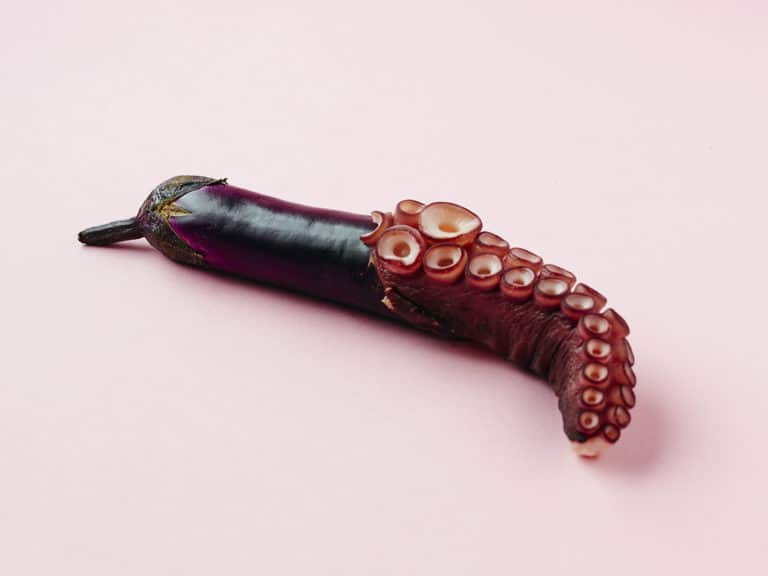Your new climate change diet: what you should eat to avoid the apocalypse

As we contemplate the catastrophe of climate change and the ways in which we can tackle this beast, what usually comes to mind is necessary tech-revisions and emission-reductions in the transportation, aviation, and energy industries. While those indeed the are the world’s biggest polluters, we often tend to ignore another major culprit: the food industry.
Last month, The New York Times published an elaborate piece about the facts behind pollution in the food industry. Screen Shot prepared a palatable version of these findings, which would give you an insight into the most polluting foods out there and what dietary choices you can make in order to reduce your carbon footprint.
So just how polluting is the food industry?
According to Science Magazine, the food system currently accounts for roughly one-quarter of the global greenhouse gas emissions humans produce each year. This figure refers to all stages of growth, production, distribution, and consumption of foods, which generate varying degrees of pollution. This includes deforestation for the purpose of farming, operation of farm machinery, raising and harvesting of all types of food—from meats to plants, as well packaging and shipping of food products.
Which types of foods cause the most damage?
The answer to this question is simple: meats and dairy. But even within these two categories there is a hierarchy.
The biggest greenhouse gas emitters are beef and lamb, with beef alone accounting for 17.7 percent of the average annual CO2 impact and lamb responsible for 9.9 percent. The main reason why meat production leaves a greater carbon footprint is that it takes up more space and energy to produce animal products as opposed to plant-based produce. It also requires more resources to raise crop that is used to feed animals which then become food themselves, as opposed to raising crop that goes directly to feed humans. Finally, cows and lambs in particular contain a special bacteria in their stomach that helps them digest grass, but also generates methane (an incredibly powerful greenhouse gas).
Next on the list of shame are farmed shrimp, which account for 9.1 percent of the average greenhouse gas impact. Farmed catfish is reportedly a great polluter as well, and so are wild shrimp and lobsters, as pulling them out of the water requires an enormous amount of energy.
Cheese, specifically Cheddar and Mozzarella, are responsible for 5.4 percent of the annual emissions average. These cheeses are more polluting than other milk products as they require large amounts of milk to be produced.
Pork and chicken trail right behind, with pork accounting for 3.8 percent of CO2 impact and poultry for 2.9 percent. Finally, eggs reportedly account for 2.1 percent of emissions and at the bottom of the list are tofu, beans and nuts (with each hardly scraping one percent).
Can my diet truly make an impact in curbing global warming?
Absolutely. Although there are other factors to consider while attempting to be more environmentally-conscious, such as our driving, flying, and consumption habits, our diet is one of the simplest ways in which we can begin to make a difference, and a growing number of studies confirm that being mindful of what we eat can significantly reduce our carbon footprint.
What dietary changes should I make, then?
First and foremost—cut back on meats and dairy. Specifically, try to reduce your consumption of beef and lamb. If relinquishing meat altogether equates the apocalypse for you, try to rely more on pork and poultry in your diet, as their production results in lower amounts of CO2 emissions.
Consuming less dairy would also significantly reduce your carbon footprint. When you do, try to opt for products like yoghurt, cottage cheese, and cream cheese, which cause less pollution. As a general rule, try to avoid cow’s milk when possible and go with soy, oat or almond milk.
If seafood is your thing, aim for wild fish such as anchovies, sardines, herring, tuna, pollock, cod, and haddock, as well as clams, oysters, and scallops, all of which generate relatively low levels of pollution.
Am I being guilted into going vegan?
Well, not exactly. While going vegan will reduce your carbon footprint by an estimated 50 percent (gasp!), simply cutting back on meats and dairy will go a long way as well, especially if you live in The West or Australia. The World Resources Institute found that if the average American substituted a third of their beef consumption with pork, poultry or legumes, their diet-caused emissions will be reduced by approximately 13 percent.
But, naturally, becoming vegan, a vegetarian, or even a pescetarian will have the most dramatic impact on your carbon footprint.
Last but crucial food-related pointers
Try to opt for seasonal and locally-grown produce. While the actual content of your diet bears more significance than where it comes from, shipping and transportation of foods nonetheless generate an immense level of CO2 emissions. What products are recommended to buy in each season will vary depending on your location.
Don’t waste food! Try to plan your purchases based on your estimated needs. In the U.S., for instance, people throw out an average of 20 percent of the food they buy, which means a tremendous amount of production-energy is generated for no reason.
Finally, for Pete’s sake, figure out how to recycle properly. Recycling is in no way a substitute for reducing waste in the first place and adjusting our diets, but it can certainly shrink our carbon footprint if done accurately. Misplacing recyclable materials in bins can cause greater damage than not recycling at all, so be sure to consult the website of your local municipality for instructions about how to recycle correctly. And, as many neighbourhoods have no plastic-bag recycling capabilities yet, using reusable shopping bags is highly recommended.
Bon appétit!




